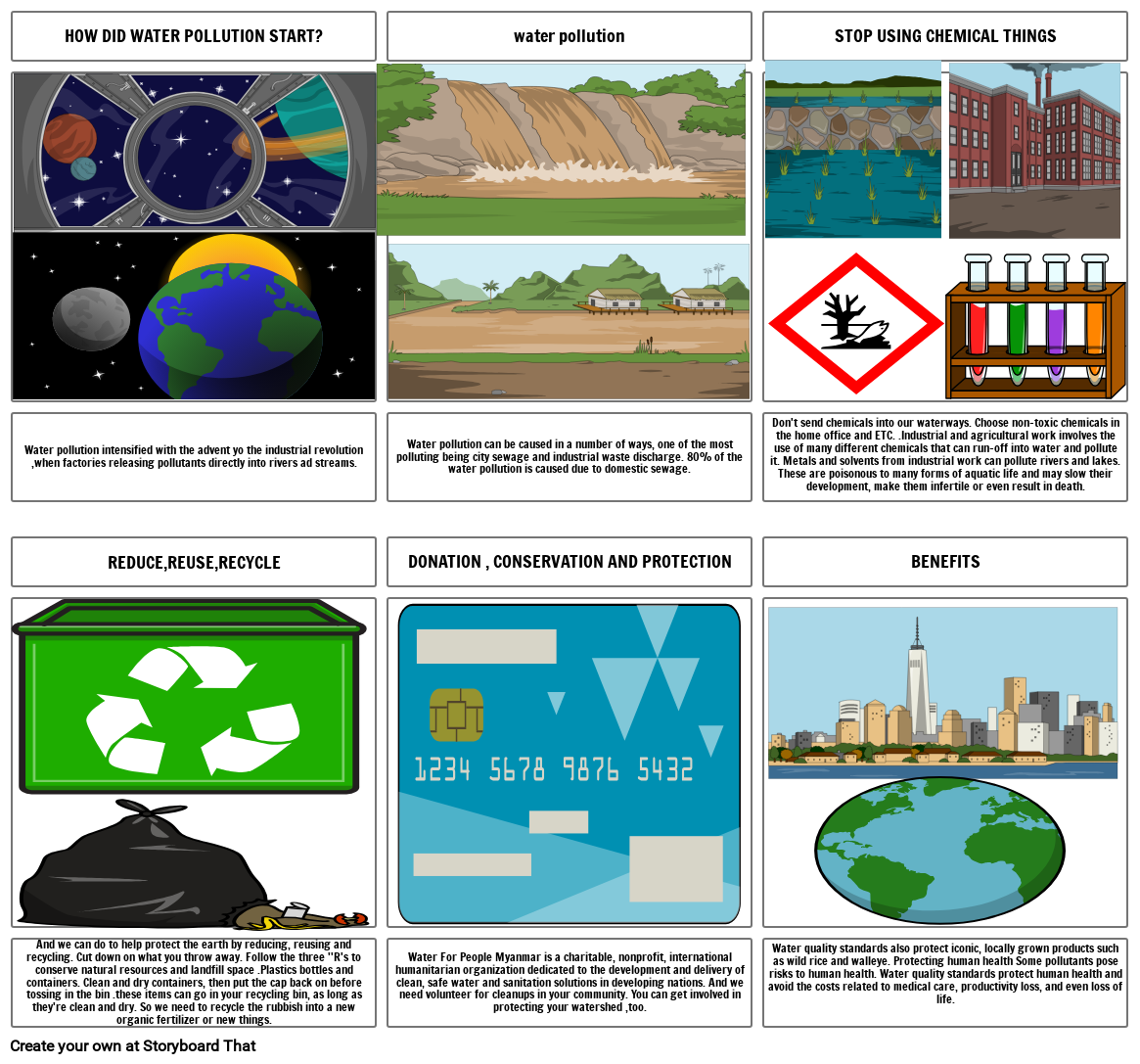Untitled Storyboard

Storyboard Text
- Slide: 1
- HOW DID WATER POLLUTION START?
- Water pollution intensified with the advent yo the industrial revolution ,when factories releasing pollutants directly into rivers ad streams.
- Slide: 2
- water pollution
- Water pollution can be caused in a number of ways, one of the most polluting being city sewage and industrial waste discharge. 80% of the water pollution is caused due to domestic sewage.
- Slide: 3
- STOP USING CHEMICAL THINGS
- Don't send chemicals into our waterways. Choose non-toxic chemicals in the home office and ETC. .Industrial and agricultural work involves the use of many different chemicals that can run-off into water and pollute it. Metals and solvents from industrial work can pollute rivers and lakes. These are poisonous to many forms of aquatic life and may slow their development, make them infertile or even result in death.
- Slide: 4
- REDUCE,REUSE,RECYCLE
- And we can do to help protect the earth by reducing, reusing and recycling. Cut down on what you throw away. Follow the three ''R's to conserve natural resources and landfill space .Plastics bottles and containers. Clean and dry containers, then put the cap back on before tossing in the bin .these items can go in your recycling bin, as long as they're clean and dry. So we need to recycle the rubbish into a new organic fertilizer or new things.
- Slide: 5
- DONATION , CONSERVATION AND PROTECTION
- Water For People Myanmar is a charitable, nonprofit, international humanitarian organization dedicated to the development and delivery of clean, safe water and sanitation solutions in developing nations. And we need volunteer for cleanups in your community. You can get involved in protecting your watershed ,too.
- Slide: 6
- BENEFITS
- Water quality standards also protect iconic, locally grown products such as wild rice and walleye. Protecting human health Some pollutants pose risks to human health. Water quality standards protect human health and avoid the costs related to medical care, productivity loss, and even loss of life.
Over 30 Million Storyboards Created
No Downloads, No Credit Card, and No Login Needed to Try!


